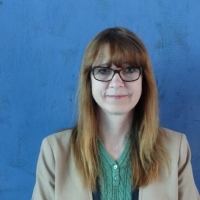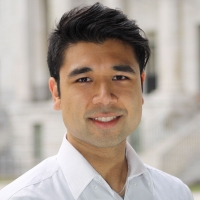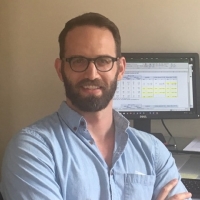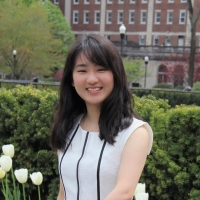Mental Health Data Science Staff
Faculty
Melanie Wall, PhD
- Division Chief, Professor
Dr. Wall has worked extensively with modeling complex multilevel and multimodal data on a wide array of psychosocial public health and psychiatric research questions in both clinical studies and large epidemiologic studies. She is an expert in longitudinal data analysis and latent variable modeling, including structural equation modeling focused on mediating and moderating (interaction) effects where she has made many methodological contributions. She has a long track record as a biostatistical mentor for Ph.D. students and NIH K awardees and regularly teaches graduate-level courses in the Department of Biostatistics in the Mailman School of Public Health attended by clinical Masters students, Ph.D. students, post-docs, and psychiatry fellows. Her current research mission is improving the accessibility and application of state-of-the-art and reproducible statistical methods across different areas of psychiatric research.

Yuanjia Wang, PhD
- Professor
Dr. Yuanjia Wang is a tenured Professor in the Department of Biostatistics at the Mailman School of Public Health and the Department of Psychiatry at Columbia University. Her methodological expertise includes developing novel machine learning methods for precision medicine and developing analytic tools for risk prediction, early disease intervention, and prevention with multiple sources of large-scale data. She has extensive applied experience with analyzing clinical trials, electronic health records, high-dimensional biomarkers, latent variable modeling, and modeling of complex multilevel epidemiological data. She has served as principle investigator, co-investigator, and lead statistician on multiple major research projects, including several large multi-site clinical trials of national interest, with Columbia serving as the biostatistics core and data coordinating center. She also has extensive experience in mentoring master-level biostatisticians, doctoral students, and junior faculty. Her substantive research area of interest includes psychiatric disorders and neurological disorders.

Hanga Galfalvy, PhD
- Associate Professor
Dr. Galfalvy's areas of expertise include statistical methodology in psychiatric research, with a special focus on the prediction models for suicidal behavior from high-dimensional data, censored regression models, statistical genetics, and longitudinal data analysis in observational studies. Dr. Galfalvy received her Ph.D. in Statistics from the University of Illinois at Urbana-Champaign in 2000. Since 2001, she has been working at Columbia University/New York State Psychiatric Institute, and currently holds dual appointments in the Department of Psychiatry and the Department of Biostatistics at Columbia University as Associate Professor of Biostatistics (in Psychiatry) at CUMC. She has served as principal investigator, co-investigator and as statistician on projects funded by NIH, the VA, American Foundation for Suicide Prevention (AFSP), SAMHSA and has many active collaborations across the USA and internationally. She is a member of the Research Grant Council at AFSP and the scientific committee of the International Association for Suicide Research/AFSP, and is a reviewer for many scientific journals. She has given invited lectures and statistical training talks nationally and internationally, and has over 130 peer-reviewed publications.

Seonjoo Lee, PhD
- Associate Professor
Dr. Seonjoo Lee received her B.S. and M.S. degrees in Statistics from the Seoul National University, South Korea. She completed her Ph.D. in Statistics and Operations Research from the University of North Carolina at Chapel Hill in 2011. Her thesis focused on the development of independent component analysis with biomedical applications. After completion of her degree, she joined the Center for Neuroscience and Regenerative Medicine at National Institution of Health and Uniform Service University and is currently working on the development of statistical methodology for high-dimensional longitudinal data. She is also interested in multimodal data analysis and latent variable modeling.
![]()
Ying Liu, PhD
- Assistant Professor
Dr. Ying Liu joined Mental Health Data Science in June 2019. Before that, she was an Assistant Professor at Medical College of Wisconsin for three years. She has dual expertise in biostatistics and machine learning. She has extensive experience in integrating machine learning methods to problem-solving in the medical domain, accompanied by open-source software packages in Python and R for these new methods. She has expertise in biostatistical methods in precision medical decision making, especially in statistical learning methods and experimental design for dynamic treatment regimes. Dr. Liu's projects utilize and adapt cutting-edge machine learning methods (such as deep learning, Bayesian generative modeling) to biostatistical practices. She has recently successfully introduced the deep generative model to the statistical community by proposing to solve a problem in False Discovery Rate controlled variable selection. This approach provides statistical inference to machine learning models such as LASSO, random forest, and neural networks. She also introduced deep reinforcement learning to mine medical registry data for sequential medical decisions. She is also interested in adopting reinforcement learning and randomization designs in mobile health. She is currently working on a variety of problems in projects ranging from drug addiction to finding patient subtypes with multiple modality brain imaging data.

Tarjinder Singh, PhD
Dr. Singh is an Assistant Professor of Computational and Statistical Genomics at Columbia University’s Department of Psychiatry and the New York State Psychiatric Institute (NYSPI) and an associate faculty member at the New York Genome Center (NYGC). He also has an interdisciplinary appointment at Columbia University’s Zuckerman Mind Brain Behavior Institute. He received his Bachelor’s Degree in Biology, Mathematics, and Economics at Williams College in 2012. He completed his graduate studies at the University of Cambridge and the Wellcome Trust Sanger Institute with Dr. Jeffrey Barrett in 2016. He continued his training at the Analytical and Translational Unit of the Massachusetts General Hospital and the Stanley Center for Psychiatric Research at the Broad Institute of Harvard and M.I.T. with Dr. Mark Daly and Dr. Benjamin Neale as a post-doctoral fellow (2017 - 2020) and an Instructor at Harvard Medical School (2020 - 2022). As part of global collaborative efforts, Dr. Singh has analyzed large-scale sequence data to identify protein-coding variants in individual genes that confer substantial risk for psychiatric disorders. He is interested in using genome sequencing as a foundational tool to understand the etiology of mental illnesses.

Biostatistical Data Analysts
Ben Huber, MPH
- Biostatistician
Benjamin Huber received his MPH in Biostatistics from Columbia University’s Mailman School of Public Health in 2022 and earned a BA in Biology from Macalester College. His current collaborations include a multinational project investigating the relationships between clinical and imaging measures among individuals with obsessive compulsive disorders, and multiple projects investigating suicide and depression. He also provides statistical support on clinical studies of Autism and Alzheimer’s disease.

Cale Basaraba, MPH
- Biostatistician
Cale Basaraba received his MPH in Epidemiology and Applied Biostatistics from Columbia University’s Mailman School of Public Health in 2016 and holds a BA and BS from Stanford University. As part of the Mental Health Data Science Group, he collaborates as a data analyst on projects concerning the treatment of first episode psychosis in young adults, substance abuse research, and also provides statistical support for the HIV Center for Behavioral and Clinical Studies.
![]()
Dan Alschuler, MS
- Biostatistician
Daniel Alschuler received a BA in Neuroscience and Behavior from Vassar College and an MS in Biostatistics from Columbia University's Mailman School of Public Health. He currently provides statistical collaboration on projects including a multinational study of obsessive-compulsive disorder biomarkers, an exploration of the effects of changing marijuana laws on U.S. veterans, and a clinical trial examining the effects of dietary supplementation on cognitive measures.

Jialiang Hua, MD, MS
- Biostatistician
Jialiang Hua received his MD in China and his MS in Biostatistics from Columbia University’s Mailman School of Public Health. He has been interested in bridging clinical practice with statistics to produce meaningful public health outcomes for years. His research interests encompass machine learning, longitudinal data analysis, and analysis of survey data and data with missing values. He currently provides statistical collaboration on projects including a longitudinal study of unhealthy eating behaviors and eating disorders, and multiple projects investigating opioid use disorder and the role of gestational SSRI exposure in the development of Functional Gastrointestinal Disorders.

Jun Liu, PhD
- Biostatistician
Dr. Liu received his Ph.D. in Statistics from Rutgers University at New Brunswick. He was focused on MRI-related statistical research for several years and is now doing research on generalized linear modeling and machine learning methods for general psychiatric data, such as hospital discharge data and appnero data.

Lydia Zhang, MPH
- Biostatistician
Lydia Zhang received her MPH in Epidemiology from Columbia University and her BA in Molecular and Cellular Biology from UC Berkeley. She currently provides statistical collaboration on projects including longitudinal study of unhealthy eating behaviors and eating disorders among adolescents, laboratory study for opioid use disorder, and study involving gene expression and DNA methylation analysis of suicide decedents.

Lynn Chen, MS
- Biostatistician
Lynn Chen received her MS in Biostatistics from Columbia University’s Mailman School of Public Health. As a Biostatistical Data Analyst at Mental Health Data Science, her current research collaborations include cannabis use research, study involving neuroimaging and cognitive neuroscience, projects investigating suicidal behaviors and depressive disorder.

Renald Dambreville, MS
- Biostatistician
Renald Dambreville received his MS in Biostatistics from New Jersey Institute of Technology and his BS in Applied Mathematics from New York City College of Technology (CUNY). His current collaborations in the division of Mental Health Data Science include the enrollment into treatment for court involved individuals with opioid use and the trajectories in behavior of first episode psychosis clients.

Tse Choo, MPH
- Biostatistician
Tse Choo has an MPH in Biostatistics from Columbia's Mailman School of Public Health and is currently a Biostatistician in the Division of Biostatistics in Psychiatry at Columbia. His research interests include mediation, spatial data analysis, latent variables, and resampling techniques.

Thomas Corbeil, MPH
- Biostatistician
Tom Corbeil holds a BA from UC Davis, an MCS from Regent College, and an MPH in Biostatistics from Columbia University’s Mailman School of Public Health. He currently provides data analysis collaboration on projects including the study of psychological development in Puerto Rican youth, mental health and hazardous drinking in sexual minority women, the promotion and acceptance of HIV testing among high school students in the Bronx, and predictors of successful transitional care after psychiatric hospitalization.

Ying Chen, MD, MS, MA
- Biostatistician
Dr. Chen received her MD in Medicine in China, MS in Biostatistics, MA in Medical Informatics from Columbia University. Dr. Chen is currently a DrPH candidate in the department of Biostatistics in the Mailman School of Public Health. Her research interests include applied statistics in Psychiatry, personalized medicine, clinical trials, telemedicine and digital health, machine learning and artificial intelligence. Currently working on projects: Telemedicine for depression in patients with non-metastatic breast cancer; Social Media Use and Impacts on Anxiety and Depressive Symptoms (YAC); Child And Adolescent Self-Awareness And Health (CASAH); Masivukeni: Development of a Multimedia Based Antiretroviral Therapy Adherence Intervention for Counselors and Patients in South Africa (MESI).

Post Docs
Aiying Zhang, PhD
- Postdoctoral Fellow
Dr. Aiying Zhang received her B.S. degree in Statistics from the University of Science and Technology and her Ph.D. degree in Biomedical Engineering from Tulane University. Her expertise lies in statistical modeling, multimodal neuroimaging and genetics, with a focus on graphical models and network science. Dr. Zhang is interested in developing data-driven approaches leveraging multi-level information to understand typical and atypical brain development. She is working on various collaborative projects involving psychiatric disorders and neurological disorders.

Hyunnum Ryu, PhD
- Postdoctoral Fellow
Dr. Hyunnam Ryu received her Ph.D. in Statistics from the University of Georgia in 2021. Her thesis focused on topological descriptors for complex network using topological data analysis and its application to brain network data. She is now doing research on topological data analysis for fMRI network data and cognitive aging

Young-geun Kim, PhD
- Postdoctoral Fellow
Dr. Young-geun Kim received a triple BS degree in Industrial Engineering, Statistics, and Mathematical Sciences from Seoul National University in 2015. He received a Ph.D. degree in Statistics from Seoul National University in 2021. His research interests include the theoretical properties of statistical distances and their application to deep learning. His recent works focus on Wasserstein generative models, identifiable representation learning, off-policy policy evaluation, and applications to Adolescent Brain Cognitive Development (ABCD) study and contingency management intervention in substance use disorder treatment.

Research Assistants
Margaret Gacheru, BA
- Research Assistant
Margaret Gacheru is a current PhD student in the Department of Biostatistics in the Mailman School of Public Health and received her B.A. in Computational and Applied Mathematics from Rice University. Her research interests are focused on the development and application of statistical methods to understand psychiatric disorders. She is currently working with Dr. Seonjoo Lee, on projects involving multimodal data analysis, latent variable modeling, and high-dimensional data analysis.

Ruiyang Li, MS
- Research Assistant
Ruiyang Li received her MS in Biostatistics from Columbia University and earned her BS in Applied Mathematics and BA in Financial Economics from University of Rochester. She has been involved in projects concerning neuroimaging and cognitive neuroscience and provides statistical collaborative support. She is currently working on statistical method development for multivariate mediation analysis.

Staff
Stephanie Chino
- Administrator

May Ting, MBS
- Project Manager
May received her MBS in Biotechnology and Genomics and her BA in Cell Biology and Neuroscience from Rutgers University. She currently provides administrative and grant management support for the division.























